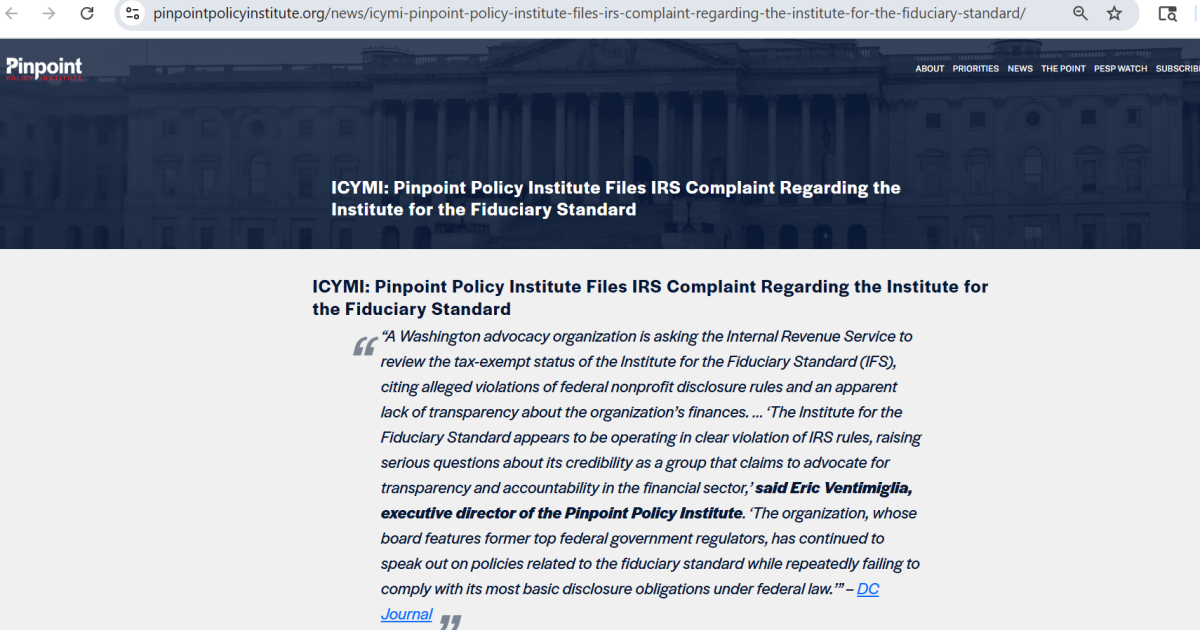When estate planning involves retirement accounts, most advisors recommend naming beneficiaries directly to avoid probate delays and preserve tax advantages. Surviving spouses typically receive the most favorable treatment under the tax code, with the ability to roll over inherited retirement assets into their own accounts and defer distributions based on their own life expectancy. However, some individuals deliberately choose to name their estate as the beneficiary of retirement accounts to maintain control over distribution terms and coordinate with overall estate planning objectives.
This creates a potential problem: does routing retirement assets through an estate destroy the surviving spouse’s valuable rollover rights or trigger an income tax debt for the estate? The answer has significant implications for tax planning and estate administration.
The IRS addressed this exact question in Private Letter Ruling 202525008, where a surviving spouse sought confirmation that she could roll over her deceased husband’s retirement plan assets even though they were designated to pass through his estate. This ruling provides an opportunity to examine how spousal rollover rights interact with estate administration and what structures can preserve these valuable tax benefits.
Facts & Procedural History
The taxpayer in this ruling was the surviving spouse. The decedent was a participant in retirement assets held in multiple employer-sponsored plans. Specifically, the decedent maintained accounts in two section 401(a) qualified retirement plans and one section 403(b) plan. The plans were all administered by the same custodian.
Rather than naming his wife directly as beneficiary, the decedent had designated his estate as the sole beneficiary of all three retirement accounts. The decedent’s will provided that his surviving spouse served as both the sole personal representative of the estate and she was the sole beneficiary of all estate assets. This dual role meant that while the retirement funds would initially be distributed to the estate, the surviving spouse would control the estate’s receipt of these assets and would ultimately receive them as the estate’s only beneficiary.
The surviving spouse planned to direct the retirement plan assets from the decedent’s accounts to the estate in her capacity as personal representative. She would then receive those same assets as the estate’s sole beneficiary and intended to roll them over into IRAs maintained in her own name within 60 days of the estate’s receipt of the distributions.
The taxpayer requested private letter ruling from the IRS to confirm the tax consequences for re-directing the retirement funds to herself.
Spousal Rollover Rights Under Section 402(c)
Section 402(c) of the tax code provides the framework for tax-free rollovers from qualified retirement plans. It allows recipients to transfer eligible rollover distributions to other qualified retirement plans or individual retirement accounts without recognizing immediate taxable income. This preserves the tax-deferred character of retirement savings.
Section 402(c)(9) provides special treatment for surviving spouses that goes beyond what other beneficiaries receive. This provision says that when a distribution attributable to an employee is paid to the spouse after the employee’s death, the rollover rules apply “in the same manner as if the spouse were the employee.”
This treatment allows surviving spouses to roll inherited retirement assets into their own IRAs or other qualified plans, rather than being limited to inherited account treatment. The surviving spouse who chooses rollover treatment for the inherited assets treats the retirement funds as the spouse’s own retirement funds for all tax purposes. Even the required minimum distributions are based on the surviving spouse’s age rather than the deceased participant’s age. The surviving spouse can even name new beneficiaries who will receive their own stretch treatment upon the spouse’s eventual death.
This flexibility makes spousal rollover rights extremely valuable for retirement and estate planning purposes.
What Constitutes Distribution to a Spouse?
The language in section 402(c)(9) requires that distributions be “paid to the spouse of the employee after the employee’s death.” This requirement is more complex when retirement assets don’t flow directly to the surviving spouse but instead pass through intermediate entities like estates or trusts.
The IRS and courts have generally applied a substance-over-form in these situations.n This considers who ultimately receives the economic benefit of the retirement assets rather than focusing solely on the mechanical steps of the distribution process. The question is whether the spouse is the true recipient of the funds even though they pass through other entities as part of the transfer mechanism.
This flexible interpretation serves important practical purposes in estate administration. Many estate plans involve structures that create indirect paths for asset transfers, such as revocable trusts or estate administration arrangements that might technically receive distributions before transferring them to intended beneficiaries. Requiring direct distribution to qualify for spousal treatment would eliminate rollover opportunities in many common planning scenarios.
Can Estates Serve as Conduits for Rollover Treatment?
Estate administration creates unique challenges for retirement asset distributions because estates are separate legal entities that can receive distributions independently of their beneficiaries. Assets that pass through an estate and then to the beneficiaries through the estate administration process are not all that different than a conduit trust situation.
With that said, estates generally cannot roll over retirement assets because they are not individuals eligible to maintain IRAs or participate in qualified plans. This means that if the estate is truly the distributee, rollover treatment would not be available. This potentially forces immediate income recognition for tax purposes.
However, when an estate serves merely as a conduit for distributions to eligible recipients, the IRS has shown willingness to look through the estate to the ultimate beneficiaries for rollover purposes.
The IRS Analysis: Substance Over Form
This brings us to the IRS ruling in this case. The ruling emphasized that the surviving spouse occupied a unique dual role as both the sole personal representative of the estate and the sole beneficiary of all estate assets. As personal representative, she would have complete authority to direct the estate’s receipt and handling of the retirement assets. As sole beneficiary, she would ultimately receive all economic benefits from those assets.
Under these circumstances, the IRS concluded that the estate would serve merely as a conduit for the distribution process. The surviving spouse’s control over both the receipt of assets by the estate and their ultimate distribution to herself meant that she should be treated as the true distributee for purposes of the rollover rules.
The IRS specifically ruled that the taxpayer would be treated as the payee or distributee of the retirement plan assets despite their initial payment to the estate. This determination allowed the normal spousal rollover provisions to apply, treating the spouse as if she were the original employee for rollover purposes.
This ruling shows that spousal rollover rights can be preserved even when the decedent’s estate is named as the plan beneficiary. To qualify, the surviving spouse has to maintain complete control over both the estate administration process and the ultimate distribution of assets. Different circumstances, such as multiple beneficiaries or co-personal representatives, might not qualify for the same favorable treatment and could require separate tax advice and could present opportunities to settle the probate estate on a tax efficient manner.
The Takeaway
This ruling clarifies that surviving spouses can preserve their valuable rollover rights even when retirement assets flow through estate administration. They have to maintain complete control over the process as both personal representative and sole beneficiary to get this tax treatment. While direct beneficiary designations remain simpler and more certain, this ruling provides important reassurance for estate plans that deliberately route retirement assets through estate administration for control and coordination purposes.
Watch Our Free On-Demand Webinar
In 40 minutes, we’ll teach you how to survive an IRS audit.
We’ll explain how the IRS conducts audits and how to manage and close the audit.





























